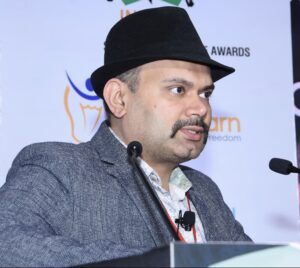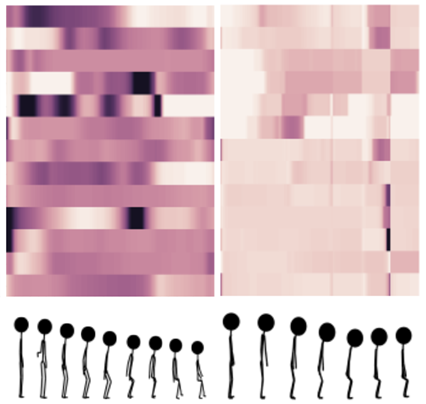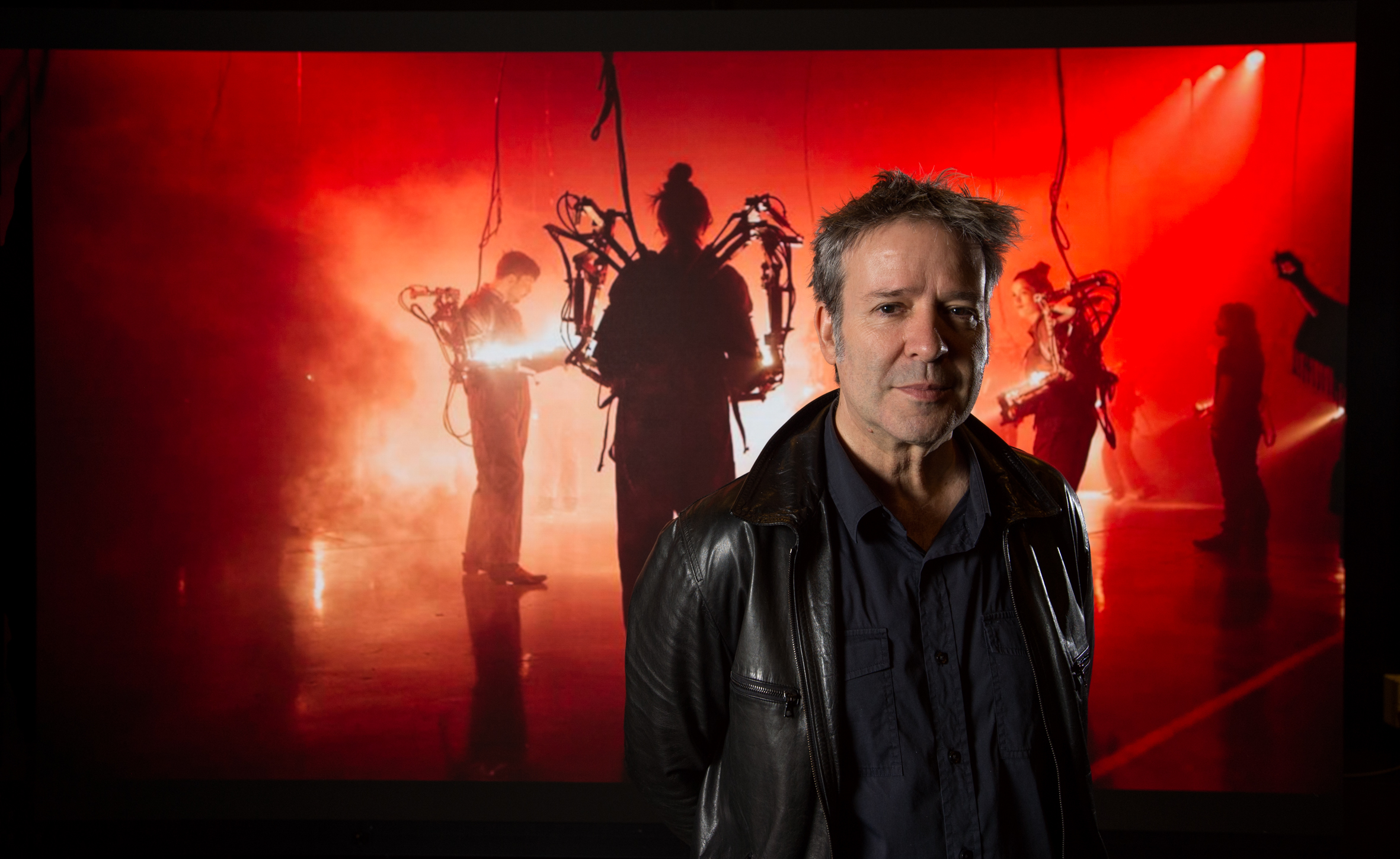Sentimental Machines
IEEE International Conference on Robotics and Automation
June 4, 2021 – Online
Sentimental machines suggest robots that not only respond to human emotional cues but also emphasise the evocative qualities of appearing emotionally vulnerable. Creative practitioners and the holistic experience they pursue can provoke critical reflections on humanity and novel human-machine relationships, while philosophers more closely examine theoretical groundings for machine sentimentality, and engineers tend to tackle technical challenges, social scientists can empirically highlight ethically problematic responses that emotionally intelligent robots might elicit.
Celebrating a Decade of Robotic Art at the IEEE ICRA 2011* – 2021
Workshop Recordings
You can now watch a collection of invited talks, keynotes and the panel discussion from the Sentimental Machines workshop.
About the Workshop
The topic of sentimental machines is of central concern of society and humanity. Yet there is still more of a need for common references and systematic cross-disciplinary values. For the healthy development of affective robotics, it is urgent and fundamentally important to envisage an ecosystem where relevant disciplines and industry work in concert.
This workshop aims to serve as a platform bringing together researchers and stakeholders from creative practice, engineering and social sciences, so that industry, academia and end-users can better co-design the processes of imagination, technical implementation and evaluation of sentimental machines. Together we explore how to enable sustained cross-disciplinary interactions and possible meta methods to design sentimental machines. One of the novelties of our workshop is to investigate the real-world and applied side of the domain, which is insured by participants (at different levels in the organising committee, speakers, audiences) from industry and research organisations.
Program
The workshop will be held on the 4th of June and will be online. The workshop is scheduled around the Central European Time zone (CET) with due considerations given to broader participation from the Asia Pacific and American regions. The workshop is free to attend, please register for the respective sessions using this link. Registered users will be provided with Zoom links to attend the two sessions.
NOTE: Except for the Interactive session, all presentations and the panel will be recorded and will be made available on public video sharing platforms. All presenters are therefore required to sign and submit a media release form available here.
Session 1 (10:00 GMT – 12:45 GMT)
All times are Greenwich Mean Time (GMT) [Check your time]
| 10:00 | Opening by Damith Herath |
| 10:05 | Invited Talk One by Kate Devlin |
| 10:20 | Keynote One – Integration of AI agents and Society: The process, challenges and benefits by Amit Kumar Pandey |
| 10:40 | Keynote two – Computational Sentimentality Through One’s Own Body by Nadia Berthouze |
| 11:00 |
Enlightening session one (EU/AU/CN zone)
|
| 11:25 | Break |
| 11:30 | Keynote three – Kinesthetic Entanglements of the Performing Machine by Louis-Philippe Demers |
| 11:50 |
Interactive Session – Imagining, Building and Evaluating Sentimental Machines With an Introduction by Caroline Yan Zheng The interactive session provides an opportunity for small groups of cross-disciplinary participants to get to know each other, and have an intimate conversation around the idea of developing sentimental machines. |
| 12:45 |
End of Session 1 |
Session 2 (14:00 GMT – 16:30 GMT)
All times are Greenwich Mean Time (GMT) [Check your time]
| 14:00 | Opening by Caroline Yan Zheng |
| 14:05 | Invited Talk Two by Thomas Arnold |
| 14:20 | Keynote four – Unfamiliar Intelligence: Art, Exoticism, Robots, and AI by Ken Goldberg |
| 14:45 |
Enlightening session two (US zone)
|
| 15:20 | Break |
| 15:30 |
Panel Session – Shifting Shapes of Collaboration Panellists: Nadia Berthouze, Kate Devlin, Ken Goldberg, Louis-Philippe Demers, Amy La Viers and Amit Pandey Moderated by Thomas Arnold “What collaboration around our Sentimental Machines themes looks most promising going forward from today?” The interdisciplinary nature of designing affective, interactive robots is often called for, but are there particular forms of collaboration that hold promise in the near future and longer term? Our panel will spark a conversation on this question and help us reconnect themes and issues from the workshop’s various presentations and discussions. |
| 16:20 | End of Session 2 |
Keynote Speakers
KN1: Integration of AI agents and Society: The process, challenges and benefits
by Dr Amit Kumar Pandey
Co-Founder, Being AI limited; Founder Socients AI and Robotics
 Bio:
Bio:
Amit Kumar Pandey (PhD, Robotics and AI) is a robotics and AI scientist. He is the co-founder of beingAI, the world’s first transmedia AI company and serves as the Chief Scientist and CTO. He is also the founder and President of Socients AI and Robotics. He has served as the President, Chief Science Officer (CSO) and CTO of Hanson Robotics, the creator of among the most expressive humanoid robots, Sophia. He was the Chief Scientist at SoftBank Robotics Europe, Paris, France, the creator of the mass produced sociable humanoid robots Pepper and Nao.
Abstract:
Never before in history, Robots, AI and IoT, all together have been so close to us, in our society. It is a revolution towards a new ecosystem of living, where AI is now the part of our lives and robots are catching up already. The intention is to facilitate a smarter, healthier, safer and happier life. Such AI beings are getting used in education, healthcare, retail, entertainment, art, science, and even to improve our understanding about ourselves, the human being. The talk will focus on some of such potential use cases, provide industrial and applied perspectives, and point towards some of the challenges we need to address as a community. The talk will open the floor by highlighting the multidisciplinary nature of the domain, and the need for a bigger collaborative ecosystem.
KN2: Computational Sentimentality Through One’s Body
by Prof Nadia Berthouze
Professor in Affective Computing and Interaction, University College London
Bio:
Nadia Bianchi-Berthouze is a Full Professor in Affective Computing and Interaction at the University College London Interaction Centre (UCLIC). Her research focuses on designing technology that can sense the affective state of its users and use that information to tailor the interaction process. She has pioneered the field of Affective Computing by investigating how body movement and touch behaviour can be used as means to recognize and measure the quality of the user experience. Her work has been motivated by real-world applications such as physical rehabilitation (EPSRC Emo&Pain, H2020 EnTiMeMent), textile design (EPSRC Digital Sensoria, EPSRC Textile Circularity Centre), education (H2020 WeDraw) and wellbeing (Intelligent Embodied Interaction, EPSRC; H2020 Human Manufacturing, EPSRC Embodied Intelligence). She has published more than 200 papers in Affective Computing, HCI, and Pattern Recognition.
Abstract:
Ubiquitous sensing technology has opened the possibility to sense people’s affective states as they go about their life. In my talk, I will present our work on affective body movement recognition in real life applications and describe the opportunity that these affective-aware technology offers to address people’s needs. I will also briefly discuss our findings on how people’s self-efficacy can be improved by altering their own body perception.

KN3: Kinesthetic Entanglements of the Performing Machine
by Prof Louis-Philippe Demers
School of Art, Design and Media, Nanyang Technological University
Bio:
Louis-Philippe Demers makes large-scale installations and performances. He participated in more than seventy artistic and stage productions and has built more than 375 machines. Demers’ works have been featured at major venues such as Theatre de la Ville, Lille 2004, Expo 1992 and 2000, Sonambiente, ISEA, Siggraph and Sonar. He received six mentions and one distinction at Ars Electronica, the first prize of Vida 2.0, mentions at Vida 12.0 and 15.0, two jury recommendations at the Japan Media Arts Festival, the Interactive prize for Lightforms 98 and six prizes for Devolution including two Helpmann Awards. Demers holds a Ph.D. on robotic performances. He was Professor at the Hochschule für Gestaltung Karlsruhe, affiliated to the world renowned Zentrum für Kunst und Medientechnologie (ZKM, Germany). Demers was the Director of the Creative Lab and Professor of Creative Innovation at the School of Creative Practice, Queensland University of Technology. Demers holds visiting/guest professorships from the University of the Ars London and in the past, at the Central Academy of Fine Arts in Beijing and at the Universität für angewandte Kunst Wien. Demers was also principal investigator the Nanyang Technological University (NTU) Interaction and Entertainment Research Centre. He is currently Associate Professor at NTU’s School of Art, Design and Media.
Abstract:
Between embodiment and computation, assembling an expressive, emotional or sentimental machine entangles multiple layers. We share and identify to biological, social, and cultural experiences with performers on the stage. Kinaesthetic spectatorship offers a theoretical account of the sensorimotor and processes joining theatre spectators and performers in a dynamic of shared enactment. Applying principles of the experiential body found in creative practices towards human-machine mise-en-scènes, I will investigate these processes by shifting the context from theatre to performing robots.
What are these empathic motor resonances we have with the expressive machine? What are then the paths to trigger kinaesthetic resonance in audience from the mechanical? Can kinaesthetic empathy be found in an anatomically divergent or alternate mechanical body? What happens when we inject artificial constructions not only on the stage but also in tacitly human social scenarios?
Thru this kinaesthetic lens, I will present selected robotic projects entailing singular bodily experiences such as being touched by a robot (The Blind Robot), being controlled by an exoskeleton (Inferno), merging with machine (Devolution), merging proprioception between machine and human (Repeat, xLimbs) and being challenged by “feral” machines (I Like Robots, Robots Like me).
Having these radical encounters at the liminal space bordering man and machine, it forces audiences to (re)consider their human bodies, (re)visit their embodied experiences and (re)position their empathic reactions to non-living systems.

KN4: Unfamiliar Intelligence: Art, Exoticism, Robots, and AI
by Prof Ken Goldberg
William S. Floyd Distinguished Professor of Engineering, UC Berkeley
 Bio:
Bio:
Ken Goldberg is an artist and William S. Floyd Jr. Distinguished Chair in Engineering, UC Berkeley. His artwork, exploring the intersection of the digital and the natural world, includes a living garden tended by a robot via the internet and the award-winning film “Why We Love Robots”. Goldberg’s has shown at the Whitney Biennial, Venice Biennale, Pompidou Center, Walker Art Center, Ars Electronica, ZKM, ICC Biennale, Kwangju Biennale, Artists Space, and the Kitchen. He is Founding Director of Berkeley’s Art, Technology, and Culture Colloquium and named IEEE Fellow in 2005. His work is in several permanent collections including the Whitney Museum in NYC.
Abstract:
Shortly after the 1918 pandemic, the word “robot” was coined in a play about mechanical workers organizing a rebellion to defeat their human
overlords. A century later, amid rising economic inequality and xenophobia, we are immersed in a new global pandemic.
In parallel, emerging advances in Artificial Intelligence and Robotics, fueled by governments, corporations, and venture capital,
disrupt labor, trade, and political stability. As claims are made about “superintelligence” and existential threats to humanity, new
questions arise about the distinctions between humans and machines.
Asserting that “humanity still has a few good years left,” Goldberg draws on art and literature from Ovid’s Pygmalian to the Golem,
through Von Kempelen’s “Mechanical Turk” (1770), E.T.A. Hoffman’s Sandman (1816), Mary Shelley’s Frankenstein (1818), Sigmund Freud’s
Uncanny (1919) and Masahiro Mori’s Uncanny Valley (1970), to contextualize our contemporary fear and fascination with AI.
Goldberg will also describe his own artwork that explores the boundary between the natural and the artificial, such as the Telegarden
(1995-2004), a living garden tended by 100,000 visitors operating a robot over the Internet, and his new project, AlphaGarden (2020-),
that challenges AI to a game with nature.
Call for Participation
The workshop calls for the participation of researchers and practitioners across disciplines of engineering, science, art and creative design, social science and philosophy. We invite position papers that best reflect the current trends of novel ideas, experimental practices, questions and challenges of interest, particularly in the following topics.
Topics of Interest
Topics around the imagination, creation and evaluation of affective robotics, including their social implications such as:
- Methods, commentary, design approaches and frameworks,
- Challenges
- Successful cases and examples
- Opportunities and challenges on cross-disciplinary collaborations
- Ethics
Submissions
Forms of presentation
The position papers will be presented in between the keynote sessions in the form of short enlightening talks, posters or short videos, based on the authors’ preference. Papers could be either;
- Extended abstracts (2 pages + reference)
- Full papers (6 pages)
Publication
We are considering a special issue, we will discuss this further after reviewing the scope of submission.
Format
Use of the IEEE ICRA format to prepare your submission is suggested. We would also consider alternate formats if your work demands (e.g. Video/Artwork). Please contact the organisers using the Contact form at the bottom of the page.
Important dates
- Submission deadline for position papers: 15 April 2021 30 April 2021 (extended)
- Notification of acceptance for presentations: 30 April 2021 16 May 2021 (extended)
- Workshop: 4 June 2021 (full day – virtual)
*For submissions, you will be re-directed to the Microsoft CMT site. You will need to register if you’re new to the CMT submissions system.
Organisers
Technical Committee:
Mi Haipeng, Associate professor, Department of Information, Art&Design, Tsinghua University, China | Amy La Viers, director at the Robotics, Automation, and Dance (RAD) Lab | Fanke Peng, Senior Lecturer, Cross-Cultural design Lab, University of Canberra | Kate Devlin, senior lecturer in social and cultural artificial intelligence, Kings’s College London, UK, author of book Turned On: Science, Sex and Robots | Jonas Jørgensen, assistant professor, Centre for Soft Robotics, Biorobotics Section, University of Southern Denmark | Elizabeth Jochum, Head of RELATE Research Laboratory for Art and Technology Aalborg University | David St-Onge, Associate professor at École de Technologie Supérieure (ÉTS)
Caroline Yan Zheng (Chair)
Caroline’s research is centred around exploring how to design robotic embodiments with affective-enabling qualities. She initiated and co-chaired the workshop “Affect & Embodiment in HRI” during HRI2020 , which has evolved into a Special Issue in ACM Transactions on Human-Robot Interaction to be published in fall 2021, where she serves as a guest editor. She was also the core committee member for full-day workshop “Using HRI (Human-Robot Interaction) Technologies to Solve the Current Social Challenges in India and Asian Countries” – RO-MAN2019. She founded Affective Futures, an initiative for interdisciplinary participants to propose, probe and prototype the futures of our emotional life with technologies and robots.
Damith Herath (Chair)
Damith has over a decade of experience leading multidisciplinary robotic research projects and is the co- and founding chair of the International Workshops on Robotics & Art held alongside key robotics conferences. These include ICRA-X: Robotic Art Program – IEEE ICRA2019, Forum – Creative Compliance – ICRA2018; Towards an artist-in-the-lab Framework – IROS2017; Misbehaving Machines – ICSR2014; Frontiers in
Human-Centred Robotics as Seen by the Arts – ICRA2011.
Thomas Arnold (Co-chair)
Research associate, ethics & philosophy in HRI, Human
Robot Interaction Laboratory, Tufts University, USA
Amit Kumar Pandey (Co-chair)
Amit Kumar Pandey (PhD, Robotics and AI) is robotics and AI scientist. He is the co-founder of Being AI limited and serving as the Chief AI Officer. He is also the founder and President of Socients AI and Robotics. He has served as the President, Chief Science Officer (CSO) and CTO of Hanson Robotics, the creator of expressive humanoid robot, Sophia. He was the Chief Scientist at SoftBank Robotics Europe, Paris, France, the creator of the mass produced sociable humanoid robots Pepper and Nao. He worked as researcher in Robotics and AI at LAAS-CNRS (French National Center for Scientific Research), Toulouse, France. His Research interest includes Robotics, AI and Society, addressing societal needs to achieve innovation through scientific advancements, new technologies and ecosystem creation. He was appointed as the General Chair of 28th IEEE International Ro-Man 2019 conference.
[Amit continued….]
He is also the Founding coordinator of Socially Intelligent Robots and Societal Applications (SIRo-SA) Topic Group (TG) of euRobotics (the European Union Robotics Community), and contributing in the Multi-Annual Roadmap for robotics in Europe. He has served as PI of several European Union Horizon 2020 collaborative projects in Robotics and AI for Healthcare, Education, Services, published 60+ research papers and delivered talks in 100+ international venues. He is serving as Robot Design Competition Chair of International Conference on Social Robotics. His other recognitions include Best three PhD theses in Robotics in Europe for the prestigious Georges Giralt Award by euRobotics; Innovation Leadership Award; Global Excellence Award; Achievers Award; Pravashi Bihari Samman Puruskar.
Contact Us
Image Credit (From Top) Caroline Yan Zheng, 2018, Intution Robotics – Elli Q, Caroline Yan Zheng, 2018© Robotic Art 2021
